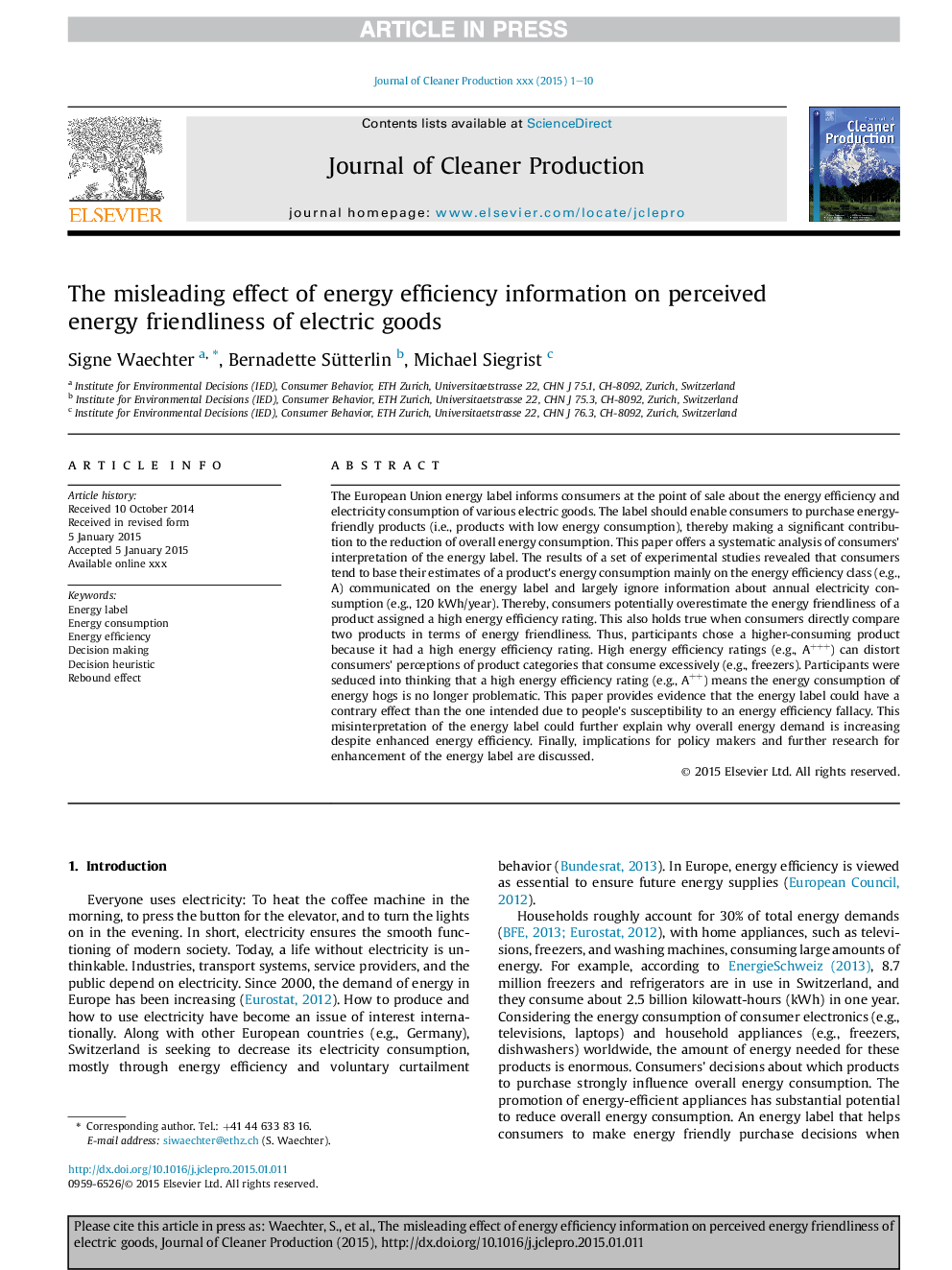| کد مقاله | کد نشریه | سال انتشار | مقاله انگلیسی | نسخه تمام متن |
|---|---|---|---|---|
| 8104785 | 1522153 | 2015 | 10 صفحه PDF | دانلود رایگان |
عنوان انگلیسی مقاله ISI
The misleading effect of energy efficiency information on perceived energy friendliness of electric goods
ترجمه فارسی عنوان
اثر گمراه کننده اطلاعات انرژی در مورد انرژی درک انرژی دوستانه کالاهای الکتریکی
دانلود مقاله + سفارش ترجمه
دانلود مقاله ISI انگلیسی
رایگان برای ایرانیان
کلمات کلیدی
برچسب انرژی، مصرف انرژی، بهره وری انرژی، تصمیم سازی، تصمیم گیری اکتشافی، تأثیر بازتاب،
موضوعات مرتبط
مهندسی و علوم پایه
مهندسی انرژی
انرژی های تجدید پذیر، توسعه پایدار و محیط زیست
چکیده انگلیسی
The European Union energy label informs consumers at the point of sale about the energy efficiency and electricity consumption of various electric goods. The label should enable consumers to purchase energy-friendly products (i.e., products with low energy consumption), thereby making a significant contribution to the reduction of overall energy consumption. This paper offers a systematic analysis of consumers' interpretation of the energy label. The results of a set of experimental studies revealed that consumers tend to base their estimates of a product's energy consumption mainly on the energy efficiency class (e.g., A) communicated on the energy label and largely ignore information about annual electricity consumption (e.g., 120Â kWh/year). Thereby, consumers potentially overestimate the energy friendliness of a product assigned a high energy efficiency rating. This also holds true when consumers directly compare two products in terms of energy friendliness. Thus, participants chose a higher-consuming product because it had a high energy efficiency rating. High energy efficiency ratings (e.g., A+++) can distort consumers' perceptions of product categories that consume excessively (e.g., freezers). Participants were seduced into thinking that a high energy efficiency rating (e.g., A++) means the energy consumption of energy hogs is no longer problematic. This paper provides evidence that the energy label could have a contrary effect than the one intended due to people's susceptibility to an energy efficiency fallacy. This misinterpretation of the energy label could further explain why overall energy demand is increasing despite enhanced energy efficiency. Finally, implications for policy makers and further research for enhancement of the energy label are discussed.
ناشر
Database: Elsevier - ScienceDirect (ساینس دایرکت)
Journal: Journal of Cleaner Production - Volume 93, 15 April 2015, Pages 193-202
Journal: Journal of Cleaner Production - Volume 93, 15 April 2015, Pages 193-202
نویسندگان
Signe Waechter, Bernadette Sütterlin, Michael Siegrist,
